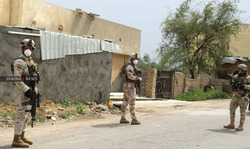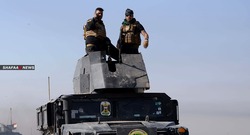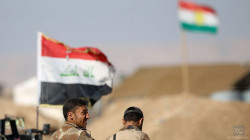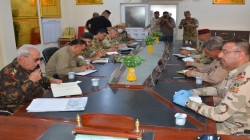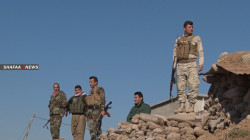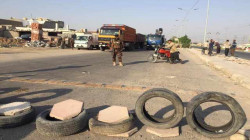Arrest made in connection with new "theft of the century" in Diyala, Iraq
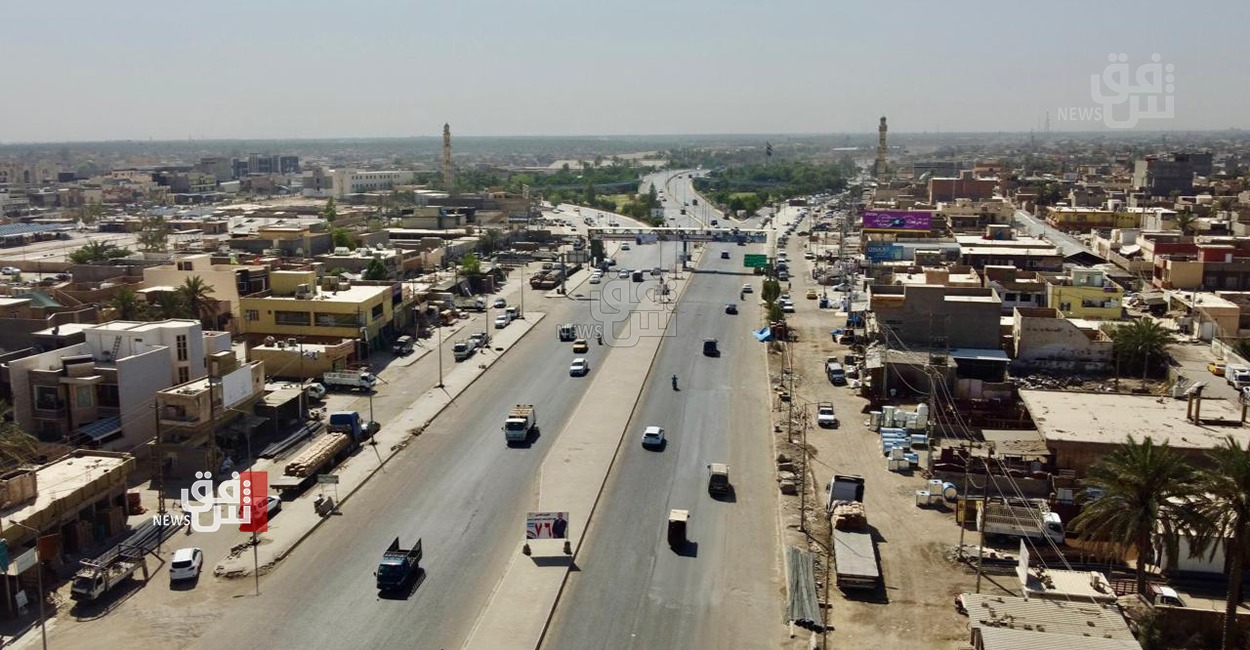
Shafaq News / A source close to the local government in Diyala revealed, on Friday, the arrest of one of the perpetrators of the recent "theft of the century," with seven safes containing money and antiquities found in his possession.
Local officials estimate the embezzled amount to be around 30 billion dinars.
The source informed Shafaq News Agency that "the arrest took place last night following a judicial order requested urgently by the acting governor of Diyala and human rights advocate Karim Ali Agha."
"A joint security force, along with an integrity team, conducted an operation to apprehend him in Baqubah city. Seven locked safes, large sums of money packed in plastic bags and suitcases, as well as antiquities, were seized from him," the source added, noting that "the detainee is an employee at the Diyala Governorate office."
The source pointed out that "the special security force raiding the location did not find any other accomplices in the crime, but they are tracking their movements and warning against harboring or aiding in their escape."
The source affirmed that "the suspect confessed to the crime, and his preliminary statements have been documented pending further investigation and formalization of his statements judicially."
Meanwhile, the special investigative committee directed by the acting governor of Diyala has commenced its work regarding the stolen amounts, which have not been officially quantified yet but are estimated to range between 8-9 billion dinars.
On Thursday, nearly $9 billion has gone missing from Diyala. According to a source with knowledge of the matter, the money, which was intended for compensation payments, was stolen by three employees who have since fled to an unknown destination.
"The theft was reportedly carried out over eight months, with the most recent withdrawal of 3 billion dinars (approximately $2.5 million) taking place just days ago," the source said. "The theft was discovered during an audit of the governorate's accounts."
A high-level investigation has been launched by the authorities to track down the perpetrators, the source added.
The theft is reminiscent of the infamous "theft of the century," in which $2.5bn was allegedly spirited away from the country's tax authority between September 2021 and August 2022 through 247 cheques that were cashed by five companies.
The money was then withdrawn in cash from the accounts of these companies, most of whose owners are on the run.
The scandal broke days before new premier Mohammed Shia Al-Sudani's government was sworn in and he has said his administration will prioritize fighting corruption, which has "so brazenly spread through the joints of the state and its institutions." He has begun publicly purging acolytes of the former prime minister Mustafa al-Kadhimi.
Corruption in Iraq is endemic and has corroded state institutions, sanctioned by a political class that has governed the country since former president Saddam Hussein was toppled in 2003. The ethno-sectarian arrangement intended to foster power-sharing has instead entrenched a system of horse-trading between factions competing for top government jobs and sources of patronage within ministries.
In a public letter after the embezzlement was revealed, ex-finance minister Ali Allawi said that he had alerted Kadhimi's office about the scheme in November 2021 and ordered payments to be halted from the accounts without his approval, but the payments continued. A former senior adviser to Kadhimi said the premier’s office had not seen "official correspondence" from Allawi about the fraud.
The companies claimed to be acting on behalf of bigger firms, including several international oil companies, according to the ministry. Three of the companies were founded in the month before the scheme began, four people with knowledge of the investigation said.
In total, the ministry said 3.7tn Iraqi dinars ($2.5bn) were withdrawn from the accounts at Rafidain — or around 2.81 percent of the country’s 2021 budget. Some of the cash was then used to buy US currency through the daily "dollar auction" — a process in which the central bank provides dollars to a commercial bank in exchange for Iraqi dinars.
